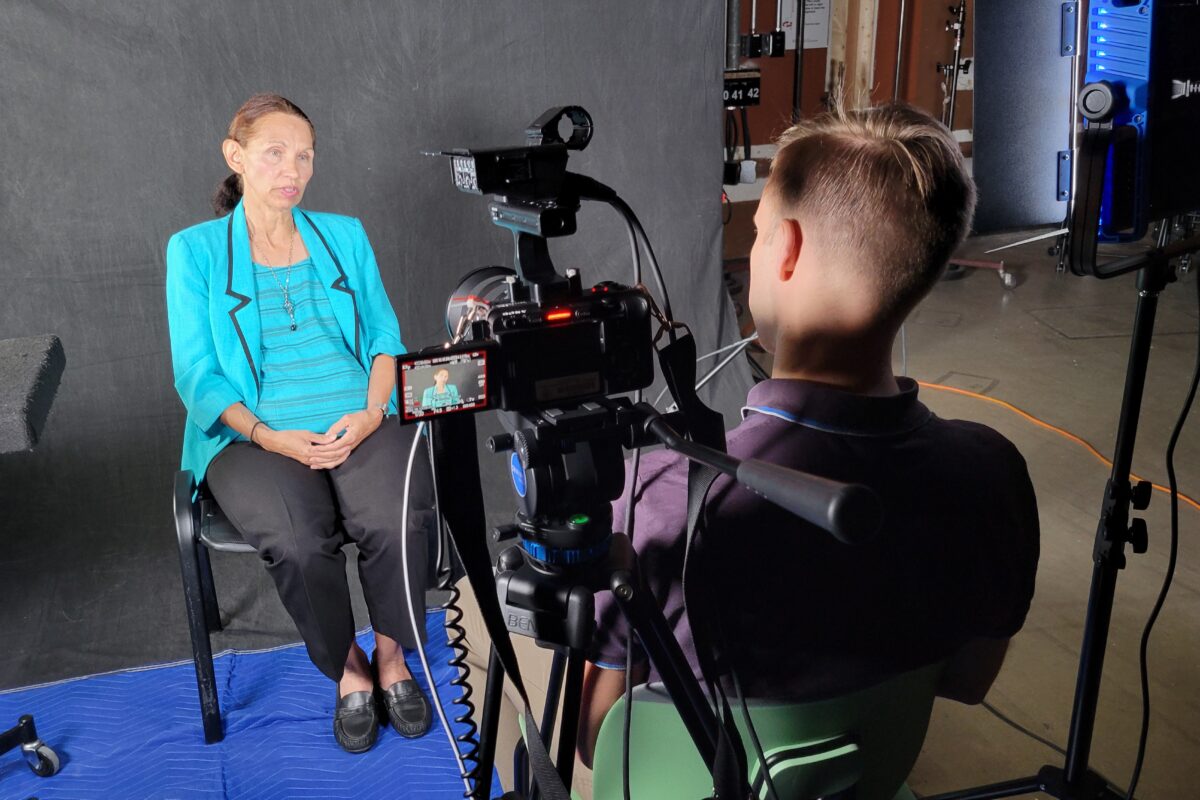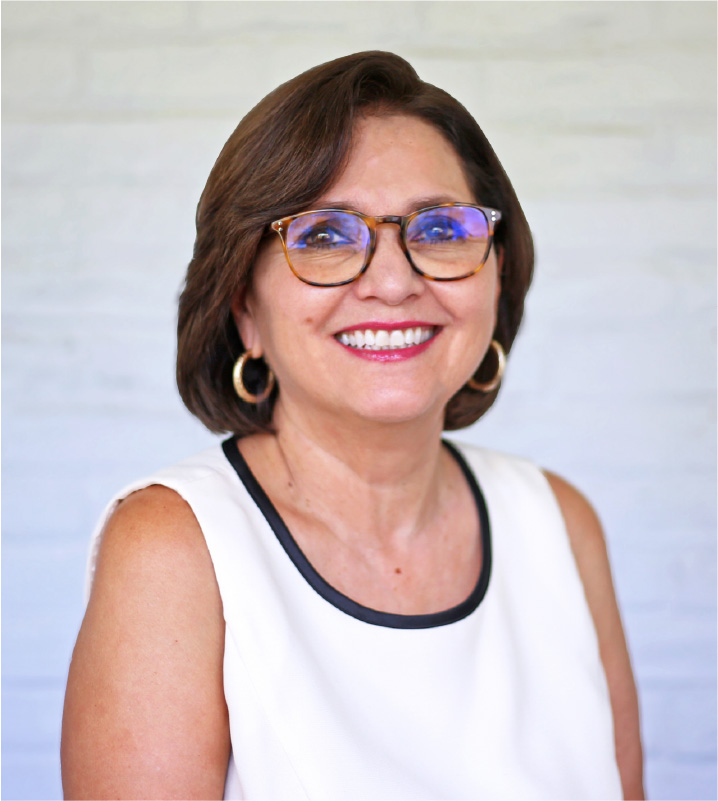In 1999, Maggie Rivas-Rodriguez, an experienced journalist turned university professor, founded the Voces Oral History Project in UT’s Moody College of Communication. Its purpose was to record interviews with Latino veterans and civilians of the second World War. In the almost 25 years following the project’s launch, its scope has widened dramatically, as have its archives, which now hold almost 2,000 interviews with Latino and Latina politicians, activists, journalists, and more. And as the project’s database of recordings has grown, so has Rivas-Rodriguez’s belief in the importance of collecting Latino stories — and encouraging others to do the same.
When the Center for Mexican American Studies in the College of Liberal Arts began searching for a new director, Rivas-Rodriguez jumped at the chance to bring her passion for Latino history and storytelling to the wider UT community. Now she’s leading CMAS through one of its largest projects yet: a significant expansion of its oral history program detailing the history of the Latino community at UT Austin.
“Every CMAS director has done something different and amazing, and I see our charge now as reconnecting with former students, staff, and faculty and really promoting the importance of writing our own history,” Rivas-Rodriguez says. “This is an essential part of telling the Latino story and the UT story, because Latinos have always been part of UT. Five years after the university was established, there was a Latino student here. This history goes way, way back, even if it hasn’t always been well represented.”
Building from CMAS’s existing oral history archive, Rivas-Rodriguez and her team have already organized more than 20 focus groups of UT faculty, staff, and students — past and present — structured around different topics and themes that will help inform future publications. One group was made up of Latino law professors, while others have focused on UT alumni from particular regions of the state, such as Brownsville or Laredo. Each interview and recording sheds new light on the Latino experience at UT and motivates Rivas-Rodriguez to record even more stories.
“Everywhere I go, I can’t escape it,” she laughs. “It’s become this huge thing. I went jogging on Saturday, and there was this man who had just finished jogging wearing a UT T-shirt. I had to hold myself back from going up to him and asking, ‘Are you a UT grad?’ so that I could talk to him about it. Because they really are everywhere, and everybody has such an interesting experience.”
But as anyone who’s ever conducted even the simplest interview knows, getting an interviewee to share detailed memories and stories is more art than science. Asking “How was your college experience?” will elicit a very different answer, for example, than “How did you feel on your first day of classes?” And great interviews can do even more than draw out the details that make up a subject’s life; they can cause an interviewee to think about their life in a different and deeper way altogether.
Rivas-Rodriguez says interviewees often come away from a CMAS or Voces recording session with a different relationship to their own experiences. After all, if someone’s going to the trouble of recording your particular story, you must have something to say.
“People start talking about things that they may not have talked about before, articulating thoughts that no one had ever asked them about,” Rivas-Rodriguez says. “I heard this one woman we interviewed for a CMAS project say, ‘I didn’t even know I felt that way.’ Participating in these interviews can actually help people to become more aware of their own values and how they look at things. We’re not asking them to be historians, we’re talking to them as the experts of their own lives, and I think that makes them look at themselves like, ‘you know what? I did something very special.’”
The oral histories Rivas-Rodriguez and her team are assembling will eventually be used to inform several book projects, including one from UT Austin’s Contextualization and Commemoration Initiative as well as a collection of interview excerpts about the history of the university’s Latino community. Though those volumes are still on the horizon, Rivas-Rodriguez is in this for the long haul — and she hopes the energy is catching.
“I would love it if other professors at other institutions look at doing something similar to record their history, and particularly the Latino experience at their institutions, because there’s so many stories just within that,” she says. “I want CMAS to be a national model of what those projects can be.”

